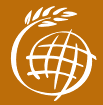Open Access to Agricultural Knowledge for Inclusive Growth
[News]


What happens when almost 75 people passionately interested in open access to knowledge (including data and information) and improving agricultural informatics in India gather together? Lots of scope for knowledge exchange and opening up of opportunities were only two of the outcomes of the "Open Access to Agricultural Knowledge for Inclusive Growth” workshop held 29-30 October 2014 in Hyderabad, India.
Organized by ICAR – the National Academy of Agricultural Research Management, the Directorate of Knowledge Management in Agriculture Indian Council of Agriculture Research and in association with GFAR – the Global Forum on Agricultural Research (through CIARD), around 80 farmer representatives, scientists, faculty, and officers from research institutions, NGOs, community based organizations, private sector and State Agricultural Universities took part in this workshop.
Agriculture and farming is becoming knowledge intensive. India recognizes this but agricultural information access and its effective use still remains constrained in India. In a country that needs to innovate its agriculture rapidly in a window that may not be more than five to ten years, the use of new agricultural knowledge becomes essential and critical.
India is in a unique position. Its government has enacted policies and laws that promote open availability of information. India is a democracy with a vibrant, vocal almost cacophonous, free press that comments almost every hour on the state of Indian agriculture. The country not only makes weather, communication and remote sensing satellites but also launches them in space with indigenously made rockets. It is building its own GPS. The country has almost 800 million cell phone users covering 76 per cent of its population across the country. Each of these phone users is a potential contributor to agricultural and food related information and data. The potential of not only generating but also effectively using knowledge effectively through use of new ICTs is almost unimaginable. And the learning of how India meets this challenge of enabling access of information through new ICTs and of ushering its more effective use in a country that has 22 official languages and more than 300 dialects, with a diversity of agricultural ecologies ranging from polar to humid tropics, will contribute enormously to the world. Just think of interoperability and integration of this information and its information systems and it is realized that solving India’s challenges in this area of agricultural information management are almost like solving them universally.
India’s capacities in the use of ICTs, especially in knowledge services are renowned across the world. And these capacities are now percolating to agriculture. Participants at the workshop revealed the volumes of data and information already available openly in the country. India is in the top ten producers of scientific papers related to agriculture and the environment. Just four handbooks of ICAR related to crops, livestock, fisheries and horticulture have more than 3500 pages packed with condensed information covering agriculture and farming and the multitude of crops, animals and fish produced in all agro-ecologies! And this is being made into the initializing of an agricultural wiki! A small University and the NGO digitalGREEN reported that they each have more than agricultural 2000 films and videos.
India has 56 agricultural Universities, 100 agricultural research institutes, 640 farmer science centers and 10,000 NGOs involved in agriculture and rural development each with their own collections of films and videos, brochures, pamphlets, books and other materials. It has 100 per cent country coverage of radio and TV with more than 500 channels. The country plans to have a 24-hour public sector agricultural TV channel within the next 3 months. There are 360 public sector radio stations with community radio and FM stations spreading fast. Each of the public sector radio stations has been broadcasting daily programs for farmers over the last 60 years. The scope of the collection of public sector All India Radio audio clips becomes difficult to imagine.
In spite of all this wealth of information that is digitized and in the public domain, there is still a large amount that remains inaccessible, locked up in vaults, archives and registers. Changing attitudes of hoarding data and information in organizations and by individuals and the change in organizational work processes to not only generate but share and disseminate information remain challenges.
Enabling effective use of all this information and knowledge in farming where more than 60 percent of the population depends directly or indirectly on agriculture is another enormous challenge. Feeding 1.25 billion people and being one of the world’s largest exporters of agricultural commodities as well as a strong domestic industry has led to the development of complex agri-food chains. The challenges of how information will flow and be used in these chains and how they will be met with appropriate governance of information systems and its flow in public, private and community sectors are fascinating for the student of agricultural informatics. Many of the questions and their answers were discussed at the Workshop.
India is changing at a bewildering pace and with similar changes in China and Brazil. The Workshop was only a milestone in the long process of opening agricultural knowledge across the world.
The proceedings of the Workshop on social media are available here. Its more organized report will soon be available on the NAARM, CIARD and EGFAR websites. Keep watching this space to know more about agricultural informatics with an emphasis on open access to knowledge and how CIARD collaborates and contributes to its development?
Photo credit: ©FAO/Giuseppe Bizzarri
Posted on 04/11/2014
Tweet
